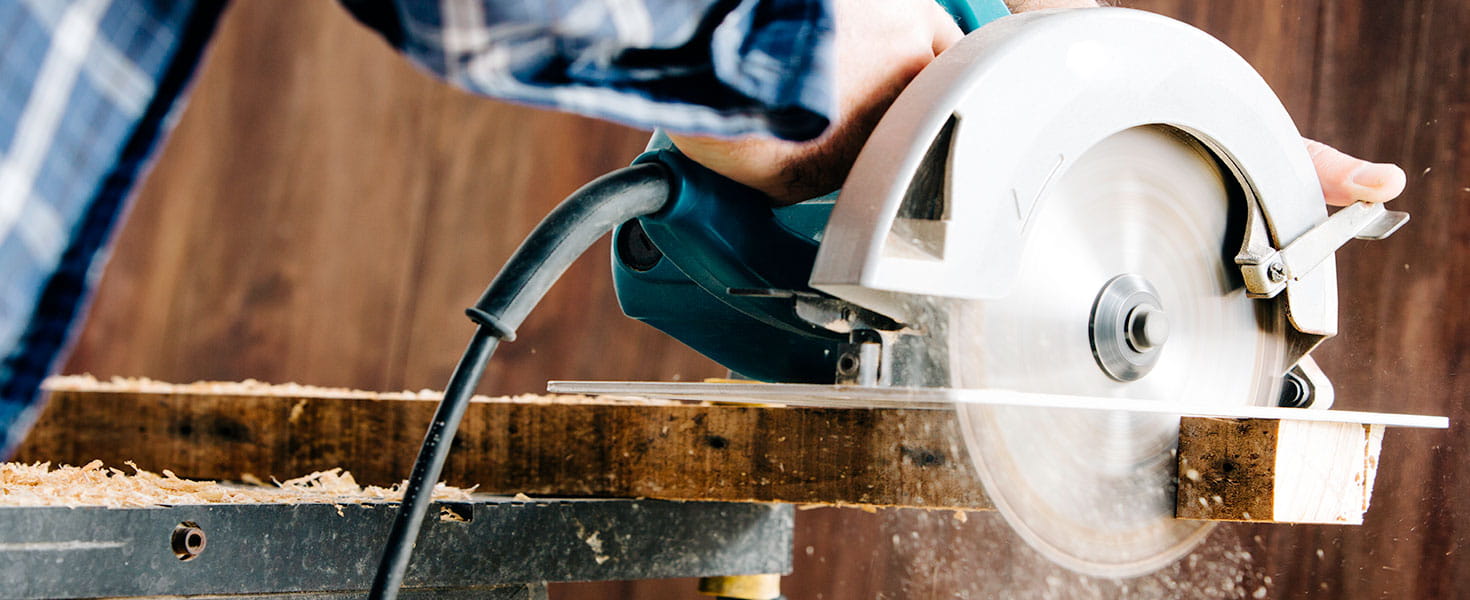IS CONTRACTOR OR DIY BEST FOR YOU?
SHOULD YOU USE A CONTRACTOR OR DIY?

Owning a home can be expensive. Ongoing homeowner expenses include property taxes, homeowner’s insurance and utilities, but you can’t forget about those unexpected home repairs like a leak or an electrical problem. Typically, homeowners can expect to spend at least 1% of their home’s value on maintenance and repairs each year, which can quickly bust your budget.
But what happens when you need a home repair? Should you hire a contractor or do it yourself? It may be tempting to do it yourself to save some money, but some jobs require professional expertise. You may be able to tackle projects such as painting or realigning a door. However, when it comes to electrical work, plumbing or tile work, you should seek professional assistance in most circumstances.
There are several reasons you may want to avoid a home repair. First, avoid a repair if it could injure you. Evaluate if you are physically able to complete the repair, or if the fix is worth the health risk. For example, if you were to attempt roofing work or electrical work, it could end in an injury which creates unplanned medical expenses on top of repair costs. This is a warning sign that you should invite a professional to make the repair.
Another reason to avoid a repair is if it could destroy your home. If you incorrectly complete a repair, the damage may not be noticeable until it’s too late. Many homeowners attempt to fix their own plumbing, but if done incorrectly, it could create other problems that would damage your home over time. You may not notice the issue until it’s too late.
If the repair requires a permit, you’ll also want to avoid it. A building permit is a document that guarantees a construction job will be completed safely. Generally, this is another warning sign that the fix may be too complicated for you to tackle yourself. Permit requirements may vary by city. Sometimes it's simple to get permits for DIY projects and in other instances, the city requires you to work with a licensed contractor before approving the project. Contact your local government to ensure this project is within your abilities.
If you determine you aren’t physically able or the project needs professional attention, you will need to hire a licensed contractor. Contractors can be pricey. Here are a few suggestions for minimizing your costs:
SHOP AROUND FOR CONTRACTOR ESTIMATES
Comparing multiple contractor estimates can help you get the best deal. Reach out to at least three contractors for quotes. Make sure to provide as many details about your project as possible. The more thorough you are, the better estimate you’ll receive.
RESEARCH YOUR CONTRACTOR AND MATERIALS
Your home is your place of security, and you want to make sure it's in the right hands. That’s why it’s important to research your contractor’s experience and credentials before hiring them. However, if you’re comfortable with a less experienced contractor, they may be cheaper. Additionally, researching materials can help you determine if your contractor is overcharging you.
PURCHASE YOUR OWN SUPPLIES
Most contractors purchase all supplies from one location. This eliminates the opportunity to shop around for a better price. If you buy the supplies, you can shop around to find the best deal. To eliminate any additional stress, double check all quantities of materials.
HIRE A CONTRACTOR DURING A SLOW SEASON
Contractors may be willing to negotiate lower prices during slower months. For example, if you live in a colder climate and are looking for an addition to your house, a contractor may be willing to complete the project for less. Keep in mind this may also extend the time needed for the project if weather delays occur.
DON’T OVERSHARE
Only share your project details with your contractor when negotiating costs. You don’t want to share your entire situation in case it impacts their likeliness to negotiate.
TREAT YOUR CONTRACTOR AS YOUR ALLY
Treating your contractor like an ally will help you get your project done for the least amount of money. Ask them for their professional opinion and ways to save money on the project. They might have solutions that come from outside the box.
OFFER TO PAY SUBCONTRACTORS
Some contractors hire specialized subcontractors to complete all or a portion of the work. Paying their subcontractors directly will eliminate the hassle for your contractor. They may be willing to lower your costs if you make it easier on them.
OVER-COMMUNICATE WITH YOUR CONTRACTOR
Communication is key to completing any project. To make sure your project is completed without a hitch, establish work hours, cleanliness of workspace, and point of contact for the project.
Your home provides safety and security for you and your loved ones. Completing a bad home repair isn’t worth jeopardizing your home. Selecting the best option for repairs will give you peace of mind, keep your family safe, and help you save money in the long run.
More Resources Request a Quote Locate an Agent









